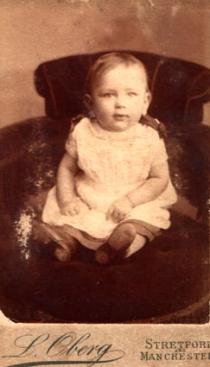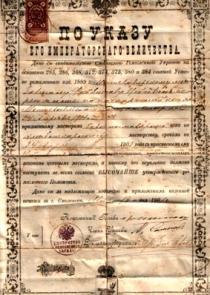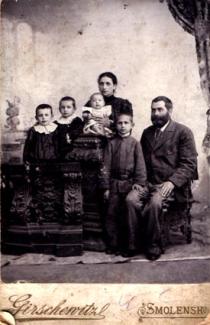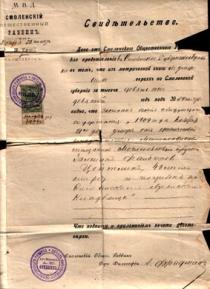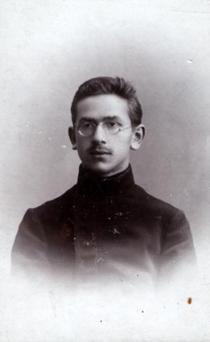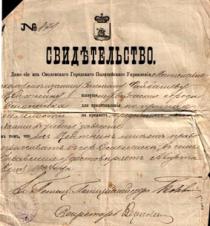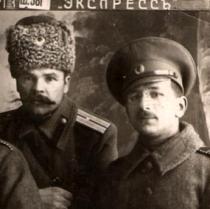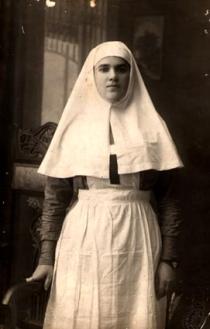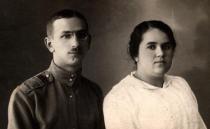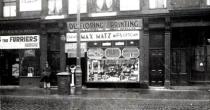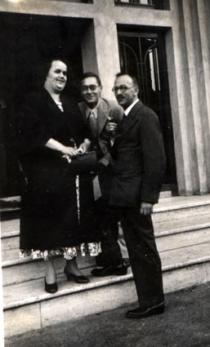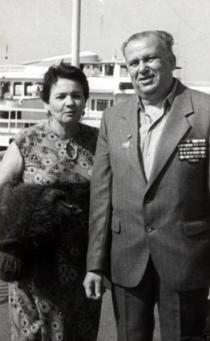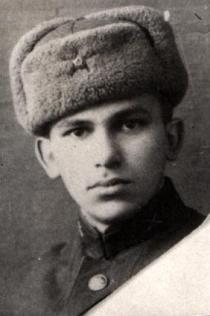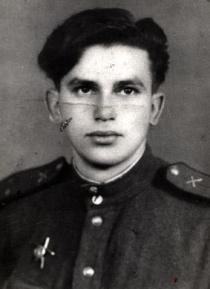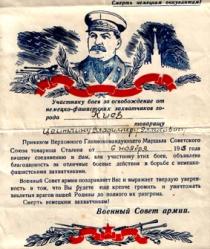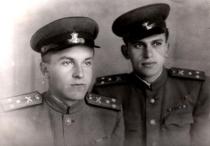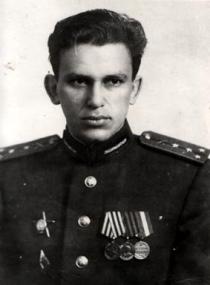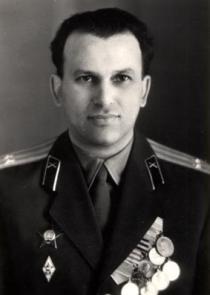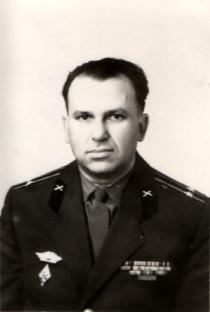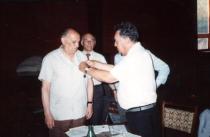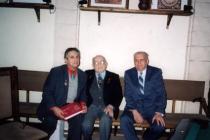These are my parents in London in 1935. From left to right in the picture: mother Mariana Tseitlina, Russian ambassador in England Mayskiy, father Ellis Tseitlin.
My father finished realschule in Smolensk. He worked in the local bank after finishing school. When WW1 began, father was drafted in the army. He was assigned an officer as he was educated. Father was a gun-soldier in the lines. He was wounded in the front and was sent to hospital in Smolensk. It was a hospital for the wounded Jews and all medical workers were Jews. My mother Mariana Havkina worked in that hospital as a nurse. My parents were young. They fell in love with each other and got married shortly after they had met, while father was still being treated in the hospital. They had a traditional Jewish wedding in accordance with the rites. Mother got some elementary medical education. It must have been courses for the nurses. Mother was a housewife after getting married.
Having discharged from the hospital, father entered the party of Bolsheviks being captivated with the communist ideas. He was overwhelmed in the revolutionary work. Father took part in the Civil War until 1920. Then father was demobilized from the army and was involved in financial and economic work. He was an educated person. There were few people like that back at that time. Parents moved to Moscow. Father was given an apartment in a large (for those times) 7-storied house in the center of Moscow at Nikitinskiy boulevard.
Our family was friendly and bonded. Mother was very kind and hospitable. Our house was full of guests: mother's pals and friends, relatives. Parents were pious, but they observed Jewish rites and marked Jewish holidays paying a tribute to the traditions. We marked such Soviet holidays as: 7th of November - when the Soviet regime came to power, 1st of May - international labor day. The whole family went to demonstrations. Father was a in a high position at work and family was rather well-off.
In 1930 father was sent to France to work. Mother and I went with him. We had lived in France for 2 years and in 1934 father was transferred to England. My father was appointed deputy USSR ambassador, Andrey Mayskiy was the USSR ambassador. Father was friends with him.
With the outbreak of the repressions in USSR, employees of the embassies and trade representative offices were recalled. Upon arrival they were immediately arrested and after a short trial sent to Gulag or shot. Mayskiy was called in Moscow for several times. He must have imagined what was going on there and refused to come referring to all kinds of reasons - either his wife or he was sick.During the entire period of the war he ensured supplies of the arms and provision from England. He was responsible for the monetary assistance. But bloodthirsty and vindictive Stalin reminded Mayskiy of his defiance. In 1949 Mayskiy was arrested and sent to Gulag. He was lucky to survive. Shortly after Stalin's death in 1953 he was released. Mayskiy never regained diplomatic work again. He was involved in scientific work and historic research. He became academician pretty soon.
Father was lucky to stay alive. Like others he was recalled from England. Father was likely to understand that he might be arrested upon his arrival in USSR. Father was predestined like many other people, who came back from the overseas. Father was saved accidentally. During the Civil War father was a commissar of the squad and the commander was his friend, who consequently became the general of NKVD. The list of those who were to be arrested and shot in the first place, was brought to that general. Looking though the list the general saw my father's name and crossed it out. Of course, he was taking a risk, but things turned out to be OK. Father only was reprimanded and that was it. Upon our return from England father was assigned the head of industry funding department at the ministry of finance. Father had to resign after being reprimanded by the party. He worked in different inconsiderable companies. Father was inlawed after Stalin's death. He was not willing to be a dignitary any more and decided to resign.

